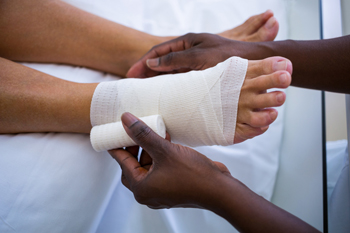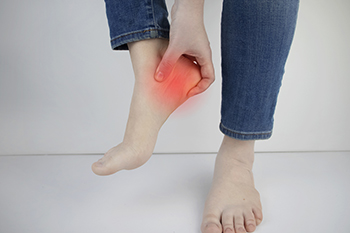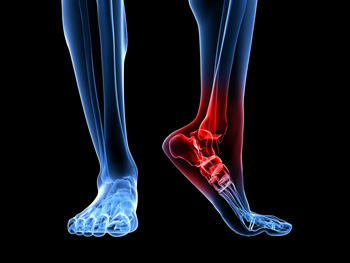Those with diabetes may find that their feet are more prone to dryness, itchiness, bruising, cuts, scrapes, and sores. These seemingly minor issues can be dangerous for diabetic feet. Even small wounds may heal slowly and poorly, becoming infected, or develop into diabetic foot ulcers (DFU's) over time. Topical medications are treatments that are applied directly to the skin to treat a skin problem. There are various topical medications that may be used to address skin conditions on diabetic feet. These include medications that moisturize the skin, protect the skin from irritants, reduce itchiness, decrease pain, disinfect wounds and aid wound healing. If you have DFU's or other skin problems on your feet a podiatrist can help to find the correct treatment for you.
Wound care is an important part in dealing with diabetes. If you have diabetes and a foot wound or would like more information about wound care for diabetics, consult with the podiatrists from Boston Common Podiatry. Our doctors will assess your condition and provide you with quality foot and ankle treatment.
What Is Wound Care?
Wound care is the practice of taking proper care of a wound. This can range from the smallest to the largest of wounds. While everyone can benefit from proper wound care, it is much more important for diabetics. Diabetics often suffer from poor blood circulation which causes wounds to heal much slower than they would in a non-diabetic.
What Is the Importance of Wound Care?
While it may not seem apparent with small ulcers on the foot, for diabetics, any size ulcer can become infected. Diabetics often also suffer from neuropathy, or nerve loss. This means they might not even feel when they have an ulcer on their foot. If the wound becomes severely infected, amputation may be necessary. Therefore, it is of the upmost importance to properly care for any and all foot wounds.
How to Care for Wounds
The best way to care for foot wounds is to prevent them. For diabetics, this means daily inspections of the feet for any signs of abnormalities or ulcers. It is also recommended to see a podiatrist several times a year for a foot inspection. If you do have an ulcer, run the wound under water to clear dirt from the wound; then apply antibiotic ointment to the wound and cover with a bandage. Bandages should be changed daily and keeping pressure off the wound is smart. It is advised to see a podiatrist, who can keep an eye on it.
If you have any questions, please feel free to contact our office located in Boston, MA . We offer the newest diagnostic and treatment technologies for all your foot care needs.



 Plantar fasciitis
Plantar fasciitis







